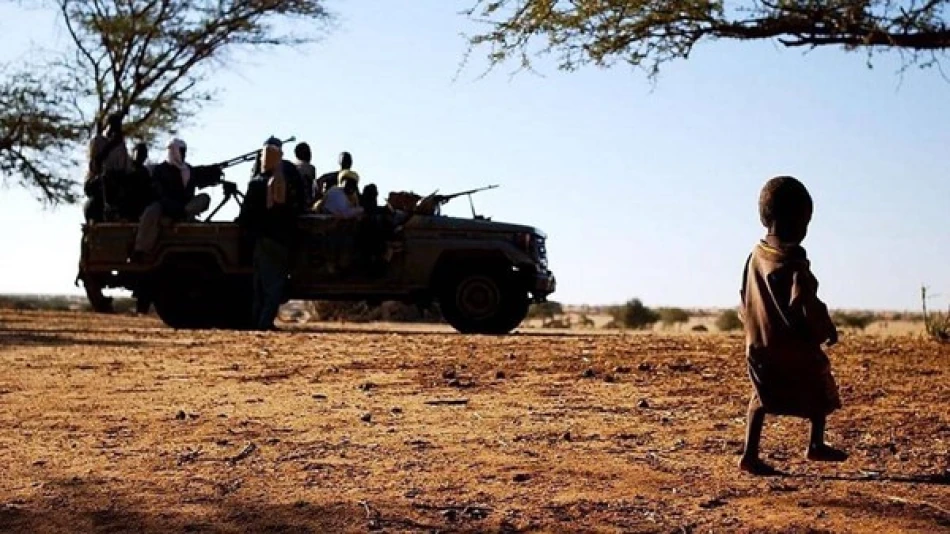
UN Warns of Renewed Violence Threat in South Sudan
South Sudan's Violence Threatens Regional Stability as UN Warns of Cross-Border Escalation
The United Nations has issued a stark warning that renewed violence in South Sudan could spiral into a regional crisis, as deteriorating humanitarian conditions and ongoing conflicts threaten to draw neighboring countries into the fray. The alert comes as the world's youngest nation faces its most serious security challenges since a 2018 peace agreement temporarily quelled years of devastating civil war.
A Nation Still Bleeding After Fragile Peace
South Sudan's trajectory since independence in 2011 reads like a cautionary tale of state failure. What began as a celebration of self-determination quickly devolved into one of Africa's deadliest conflicts between 2013 and 2018, claiming approximately 400,000 lives and displacing four million people—nearly half the country's population.
The 2018 ceasefire agreement brought temporary respite, but the underlying tensions that fueled the original conflict remain largely unresolved. Ethnic divisions, competition for resources, and weak governance structures continue to simmer beneath the surface, creating conditions ripe for renewed violence.
Regional Spillover Becomes Reality
Martha Pobee, UN Assistant Secretary-General for Africa, delivered a sobering assessment to the UN Security Council, warning that current dynamics could trigger "a shift in conflict patterns" that would inevitably involve neighboring states. Her concerns are not hypothetical—they're already materializing.
In late July, a deadly firefight between South Sudanese and Ugandan security forces near their shared border left at least six people dead, demonstrating how quickly local tensions can escalate into international incidents. This clash represents exactly the kind of cross-border violence that regional powers have long feared.
The Domino Effect in an Unstable Region
Pobee's warning about violence spreading "within an already unstable regional context" highlights a critical vulnerability. The Horn of Africa and East Africa are experiencing multiple simultaneous crises: Sudan's own civil war, ongoing instability in Somalia, tensions between Ethiopia and various neighbors, and resource conflicts across the Sahel.
South Sudan's strategic location makes it a potential catalyst for broader regional destabilization. The country shares borders with six nations, several of which are already grappling with their own internal conflicts or refugee crises stemming from South Sudan's previous civil war.
Economic and Humanitarian Implications
The renewed violence threatens to undermine what little economic progress South Sudan has achieved. The country remains heavily dependent on oil revenues, but infrastructure damage and security concerns have consistently hampered production and export capabilities. International investors and development partners, already wary of the country's instability, are likely to further reduce engagement if violence escalates.
From a humanitarian perspective, the implications are dire. South Sudan already hosts one of the world's largest displacement crises, and renewed conflict would likely trigger fresh waves of refugees into neighboring countries that are ill-equipped to handle additional populations.
International Response and Strategic Calculations
The UN's public warning signals growing international concern about South Sudan's trajectory, but also highlights the limited options available to external actors. Previous peacekeeping efforts have had mixed results, and the international community's appetite for large-scale intervention in African conflicts has diminished significantly.
Regional powers like Uganda, Kenya, and Ethiopia face difficult calculations. While they have strategic interests in South Sudan's stability, direct military involvement could draw them into a protracted conflict with unclear objectives and significant costs.
The warning also reflects broader concerns about conflict contagion in regions where state capacity is limited and ethnic or tribal affiliations cross national boundaries. South Sudan's crisis demonstrates how internal conflicts in weak states can quickly become regional security challenges, requiring coordinated international responses that remain difficult to organize and implement effectively.
Most Viewed News

 Layla Al Mansoori
Layla Al Mansoori






